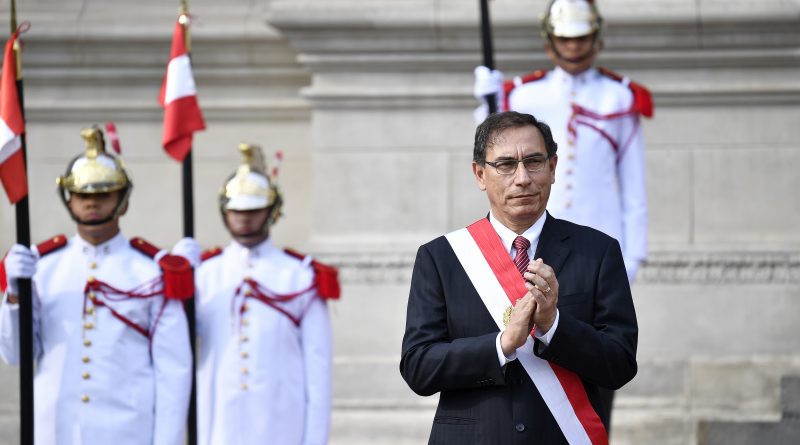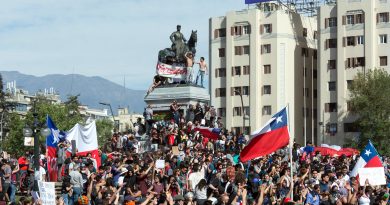Anti-corruption Crusade Makes Peru’s Crisis Worthwhile
Daniela Maquera
Staff Writer
According to Reuters, on September 30, the Congress of Peru was dissolved. This decision comes after a long-standing year of Peruvian President Martin Vizcarra laying out proposals to clean up political and judicial institutions against rampant corruption among the country’s elites. Early legislative elections have been rescheduled for January 26.
Peru has a history of four previous presidents involved in serious scandals. Two have been convicted, one faces extradition from the United States, and another shot himself rather than submitting to arrest. Peru proved that the rule of law can extend all the way to the top. Continuing this pursuit, President Vizcarra engaged in an anti-corruption crusade which soon became futile as his efforts were resisted by an opposition-controlled Congress.
During the week when Odebrecht, Brazilian construction giant, planned to reveal the identities of more than 70 Peruvian “code names,” mainly Congress members who received bribes or illegal campaign funding from them, shameless legislators were privately planning their getaway: the election of a new constitutional court who will rule in their favor. The drafted list by Congress members of judicial candidates included the names of ten judges who are allegedly linked to corruption or face unresolved criminal accusations themselves, according to The New York Times.
Among the items on the court’s agenda was a habeas corpus petition seeking the release of jailed opposition leader Keiko Fujimori, the daughter of imprisoned former president Alberto Fujimori, as well as the release of Mr. Fujimori himself. Such a calculated cover-up scandal proves that the fundamental issue beneath the Peruvian legal, constitutional, and political tangle is assured political corruption within Congress.
In response, Vizcarra attempted to head the plan off by calling for a vote of confidence. According to the country’s constitution, if two of the president’s cabinet chiefs lose votes of confidence, he/she is allowed to dissolve the unicameral parliament. The Washington Post states that previously in 2017, the government had lost one of those votes. On September 30, cabinet chief Salvador del Solar addressed lawmakers and asked them to hold a confidence vote on the government proposal to make the selection of Constitutional Court justices more transparent.
Ignoring the proposal, Congress, instead proceeded with the election of the first two judicial candidates. Treated as a rejection of the vote of confidence, Vizcarra sent the candidates packing in order to expedite legislative elections to January 26. Per Aljazeera, this was regarded as a constructive step “towards overcoming the crisis” according to the Organization of American States.
Some lawmakers refused to leave their seats and instead engaged in a “temper tantrum,” as the former head of the Peruvian chapter of the anti-corruption group Transparency International, Walter Alban, states. With a lacking majority to vote for impeachment, Congress persisted in its intent to suspend Mr. Vizcarra and installed his vice president Mercedez Aráoz. She, however, resigned one day later as the police and military reclaimed Vizcarra as their “supreme commander,” according to The Washington Post. Despite no longer being legislators, former members of Congress claimed they will ask the country’s top court, the Constitutional Tribunal, to intervene in what they call a coup.
“President Vizcarra has returned power to the people,” Marisa Glave, a lawmaker from the small leftist New Peru party, stated referring to the dissolution of Congress, says The Washington Post. Regardless of who is right, both sides have accused the other of abusing power and jeopardizing the nation’s stability.
Peruvians, however, appear overwhelmingly in favor of Vizcarra’s decision, according to The New York Times. Weary of endless scandals and partisan bickering, recent polls have found that more than 70 percent of Peruvians favored the congressional shutdown. The OAS affirms “it is appropriate for the political polarization the country is suffering from being resolved by the people at the polls,” says Time.
It is then not Vizcarra who has won here, but the people. With his new cabinet, Vizcarra must prove his commitment to the Peruvian people and enact the anti-corrupt initiatives he promised. The opportunity is opened for a new political reform; for justice to be executed. The people have demanded justice and now the corrupt system that uses democratic institutions to shield their members and allies from criminal investigations must be reformed and corrected.



